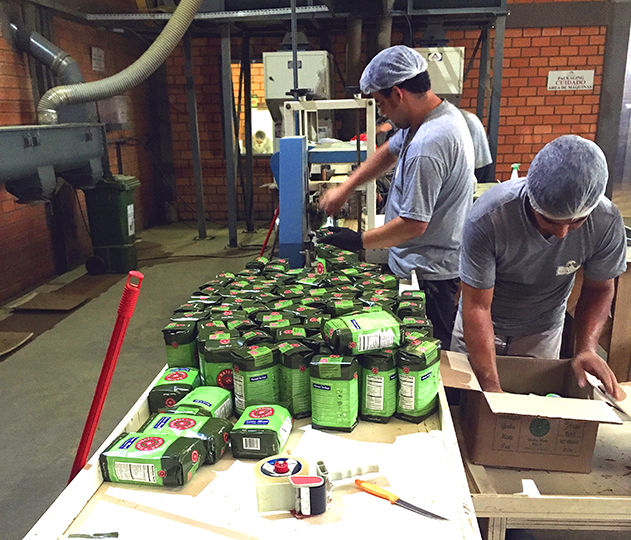South America’s answer to the Brits’ builder’s brew, their choice pick-me-up is said to have the kick of coffee, the health perks of tea and the delight of chocolate.
But for all its benefits, Brazil’s best-loved beverage has been linked to mouth, throat, kidney and bladder cancers. It is a hard fact to swallow in a country where people in every park and square sit sipping it.
Made from the dried, chopped, ground leaves of rainforest holly tree, maté, like many foods and drinks, contains polycyclic aromatic hydrocarbons (PAHs).
The traditional wood smoke drying process, which puts wood smoke in direct contact with the tea, contaminates it with high levels of cancer-causing PAHs.
Experts in heat exchangers and thermal systems at Brunel University London have invented a novel way to dry maté tea leaves. They use clean hot air, made by burning any biofuels, and a heat-pipe-based heat exchanger to stop PAHs forming and make maté safe to drink.
“The project is in response to a need highlighted by a major maté tea beverage producer in Brazil with a vision of obtaining a safer, cleaner, efficient and cost-effective tea leaves drying system,” said Brunel’s Prof Hussam Jouhara.
“Brunel’s standing in the heat-pipe-based heat exchangers design and optimisation has again brought to market new innovation that will make a very popular drink in South America safe.”

Perched in the city of São Mateus do Sul, one of Brazil’s biggest maté producers, Ervateira São Mateus, (pictured) has been using Prof Jouhara’s heat-pipe-based system for a year. “It demonstrates that any biofuel can be used to run the process,” he said, “and the heat-pipe-based heat exchanger will ensure that only sensible heat is transferred from the resulting flue gas to heat a clean stream of air that will, in turn, be used to dry the leaves.”
Britain and Brazil are pouring £3.4m into Brunel’s Erva Mate Drying Project to perfect the new heat-pipe-based drying process and percolate prospects for export. By tackling toxicity and enabling any biofuel to be used, Brunel’s fixes will cut out PAHs in maté tea and recycle waste into fuel, reducing both costs and carbon footprint.
It promises fantastic returns for Brazil’s economy, safeguarding sales and widening the maté market for exports to Syria and the Middle East, Europe and eventually world-wide.
Reported by:
Hayley Jarvis,
Media Relations
+44 (0)1895 268176
Hayley.jarvis@brunel.ac.uk